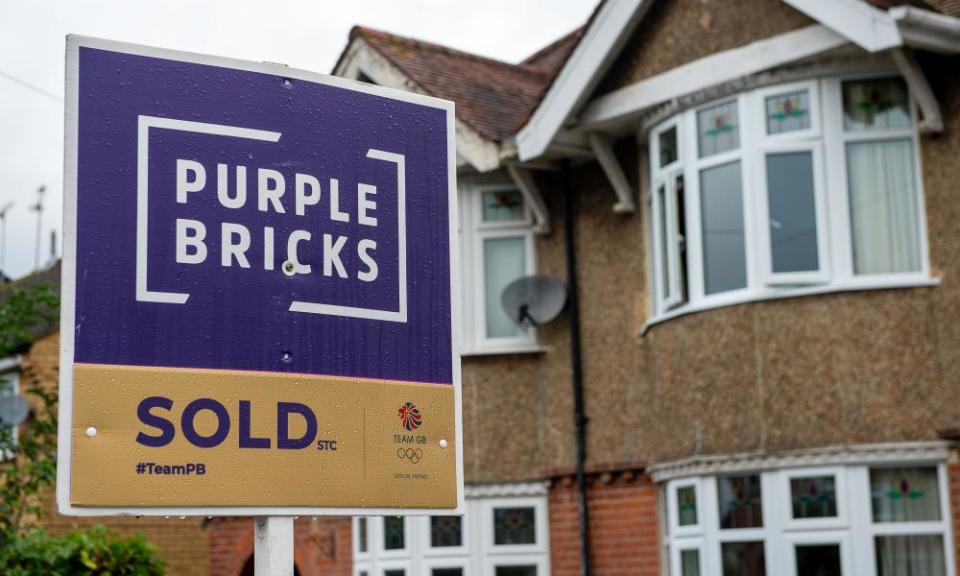UK mortgage demand at highest in 13 years despite Covid crisis

UK mortgage approvals reached their highest level in 13 years last month as tighter Covid-19 restrictions failed to dent strong demand for home loans.
Figures from the Bank of England showed there were 97,500 loans approved by lenders in October – the highest figure since September 2007, the month at the start of the financial crisis when queues formed outside branches of Northern Rock.
Threadneedle Street said mortgage approvals were more than 5,000 higher than in September and a third higher than in February, the month before the first lockdown was imposed in response to the pandemic.
Mortgage borrowing hit a trough of just £200m in April but has since recovered to £4.3bn. The number of approvals has increased tenfold after hitting a low point of 9,400 in May.
Pent-up demand from the period when estate agents were shut and the temporary cut in stamp duty announced by Rishi Sunak in this summer’s economic package in July have both contributed to the boom in mortgage demand, analysts said.
Sam Tombs, a UK economist at Pantheon, said the chancellor’s decision to drop stamp duty until March on properties up to £500,000 had “turbo-charged” the market and that demand was likely to stay at high levels throughout the winter as buyers sought to take advantage of the tax break.
Google Trends data showed that visits to the three main property websites – Rightmove, Zoopla and OnTheMarket – were up 30% year on year in the week ending 22 November, Tombs added. “The housing market, however, remains set to weaken sharply after the threshold for stamp duty is returned to £125,000 from £500,000 at the end of March,” he said.
But while the mortgage market remained resilient as all parts of the UK tightened social distancing rules in response to a second wave of infections, the Bank found that consumers remained cautious about borrowing using credit cards or other forms of lending.
Households repaid £600m of debt in October, the same as in September, taking the cumulative repayment to £15.6bn since the end of March. Credit card debt has fallen by 13% over the past year as nervous consumers have reined in borrowing. Businesses also repaid loans.
Thomas Pugh, a UK economist at Capital Economics, said that while consumers and businesses were paying back credit, “the good news on vaccines means that businesses and consumers’ purses could be pretty full when regulations are loosened early next year, leading to a sharp rebound in consumption and growth.”

